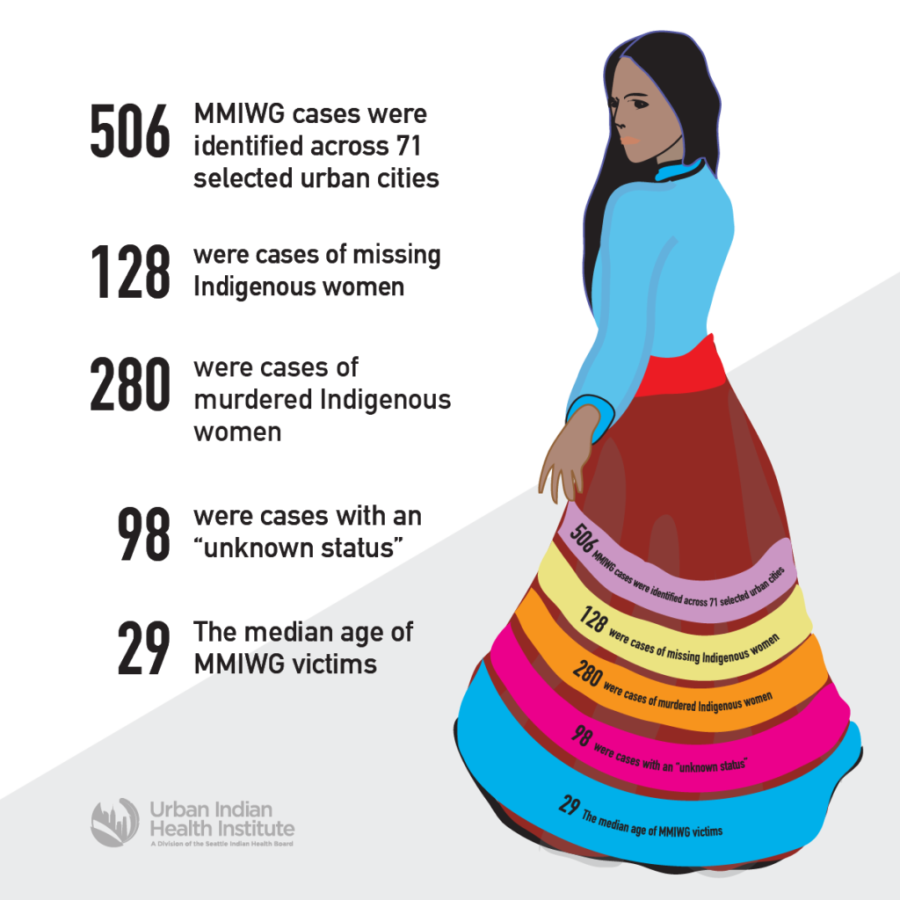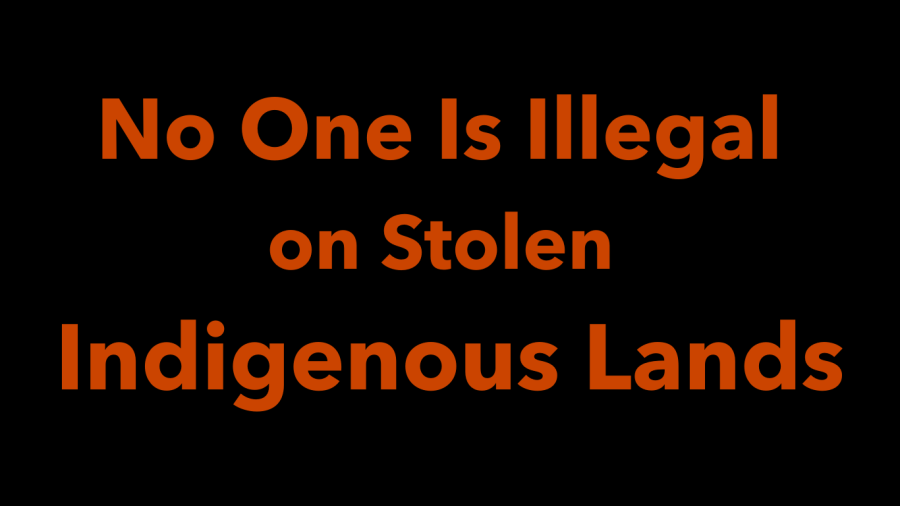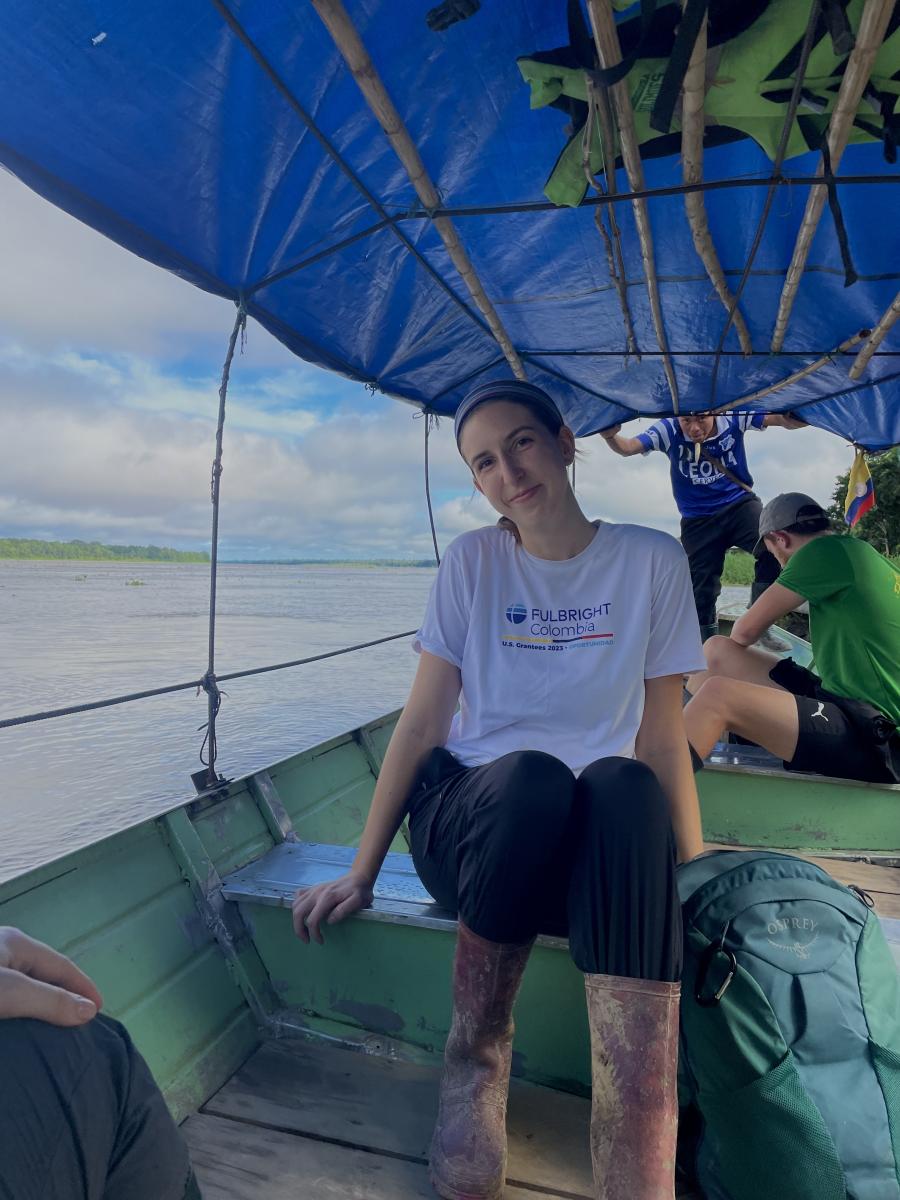
November 1 is the start of Native American Heritage Month and it is an excellent time to celebrate Indigenous Peoples’ brilliance, resilience, and cultural and language diversity!
In honor of Native American Heritage Month, we are excited to share with you our partnership with CBS Sports to celebrate Indigenous athletes of the past, present and future. We thank Daisee Francour (Oneida), Cultural Survival Director of Strategic Partnerships and Communications, and artist Roger Sosakete Perkins (Akwesasne Mohawk) for their leadership and guidance on co-creating a 60-second animation film, "A Gift from the Haudenosaunee," about Indigenous Peoples in sports, and in particular, the Creator’s game (lacrosse), a gift from the Haudenosaunee.
Francour shares, “Indigenous Peoples have long been misrepresented in mainstream media. We are often portrayed as figments of the past, overly romanticized, or erased completely. As Indigenous Peoples, we fight every day to reclaim our narratives and rectify the misconceptions of how society views or understands our Peoples. It is not our responsibility to right the wrongs of history, and I commend CBS Sports for their commitment to centering Indigenous voices and leadership in this video. I hope other media institutions will follow in their footsteps to build genuine partnerships with Indigenous Peoples and Indigenous organizations to shift the narrative and bring visibility to our communities.” Perkins says, “[It is] such a fantastic and artistic depiction that honors Indigenous People! It sure does promote peace, unity, and sports! Excellent job to everyone! I’m very proud to have been a part of this! Thank you all!”
Join us in honoring and acknowledging truth in history, recognizing whose land we are on, and work towards true allyship. Check out this resource list (non-exhaustive) and explore the many ways to honor and celebrate Indigenous Peoples today, and every day.
Land Acknowledgement, Traditional Lands, and Treaties
Do you know what a land acknowledgment is, why it is important and how to incorporate the practice into your own life? The Native Governance Center shares this handy Guide to Indigenous Land Acknowledgement.
If you’re unsure about the Indigenous Peoples' land you are living on, you can search your location using Native Land, a growing database that documents traditional territories, languages, and treaties worldwide. This resource is also available as an app for your phone or tablet.
Other resources include Tribal Nations Maps, a source of hard copy maps that identify the traditional lands of Tribes in North and South America and the Caribbean, and the Smithsonian’s digital archive of treaties made between the United States and Indigenous Tribes.
Teachers can find lesson plans, activities, and more on TeacherVision’s TeacherVision's Native American Heritage Month page. Tribal Maps also sells great children’s books that feature quality Indigenous representation.
Honoring Indigenous Stories
In addition to deepening your knowledge and awareness, it’s important to incorporate more Indigenous voices into your life, too.
Native Journalism and Publications
- First Nations Development Institute: 10 Featured Books for 2020
- Book Marks Reviews: 12 Books by Indigenous Writers
- Buzzfeed News: 14 Contemporary Books by Native American Authors
- Electric Literature: Decolonize Your Bookshelf with these Books by Native American Writers
- Open Education Database: 20 Native American Authors You Need to Read
- Sea Howl Bookshop: Indigenous Authors & History
- Tribal Maps: Children's Books by School Age Level
- Native American Journalism Association
- Indian Country Today
- Powwows.com
- Native News Online
- Support Indigenous authors by reading their works.
- Check out this reading list by the First Nations Development Institute
- And read books by Indigenous authors to your kids!
- Marvel Voices
Podcasts
- Indian & Cowboy
- All My Relations
- The Native Seed Pod
- Coffee & Quaq
- Red Nation Podcast
- This Land
- Indigenous Rights Radio
Films and Theatre
- American Indian Film Festival
- 4 New Indigenous Films by and about Native Women by Indian Country Today
- The Upstander Project: Dawnland, First Light, Dear Georgina, and Bounty
- 8 Essential Films of the Native American Experience by Corinne Rice
- 10 Contemporary Native American Playwrights You Should Know
- Project HOOP - A national, multi-disciplinary initiative to advance Native theater
- Native Voices - A collection of First Nations voices as they share their experiences in (North) American theatre making
- Spiderwoman Theater, Brooklyn, NY - The first Native American women’s theater troupe
- New Native Theatre, St. Paul, MN
- Red Eagle Soaring Native Youth Theatre, Seattle, WA
Support Indigenous Businesses and Organizations
If you want to support Indigenous businesses but are unsure of the line between cultural appropriation and appreciation, check out Cultural Survival’s cultural appropriation resource list. You can also read this interview with Bethany Yellowtail (Crow and Cheyenne), curator of the B. Yellowtail Collective.
For a wide array of services and goods, check out NativeWeb's database of Native-owned businesses.
Indigenous Owned and Operated Businesses
Apparel, Jewelry, and Accessories
- B. Yellowtail Collective
- Beyond Buckskin Boutique
- Buy Native
- SheNative Goods
- Trickster Company
- Urban Native Era
- Eighth Generation
- The NTVS
- OXDX Clothing
- Indigenous Cosmetics
- Eighth Generation
- Wampanoag Trading Post
- Cultural Survival Bazaar Artists
Native Food Companies and Native Chefs
- Alliance of Native Seed Keepers
- I-Collective
- Sly Fox Den
- Bedré Fine Chocolate
- Tanka Bar
- Ramona's American Indian Foods
- Séka Hills
- Red Lake Nation Foods
- Sweetgrass Trading Company
- Wahpepah’s Kitchen
- Chef Tawnya Brant
- Chef Brian Yazzie, 'Yazzie the Chef'
- Chef Sean Sherman, the 'Sioux Chef'
- Chef Lois Ellen Frank, Red Mesa Cuisine
Native Consulting
- Moskehtu Consulting
- SIxth World Solutions
- Buffalo Nickel Creative
- First Light Foundation
- Jonathan James Perry
Indigenize your music playlist
Listen to a playlist of Native music curated by IllumiNative on Spotify.
Support Indigenous-led Nonprofits
Support Native organizations who are working hard to improve the health, well-being, livelihoods and to uphold the rights of Native Americans across Indian country.
- American Indian Law Alliance - works with Indigenous Nations & Peoples in our struggle for sovereignty, human rights & social justice.
- American Indian College Fund- Provides scholarships to American Indian students
- Center for Native American Youth- Works to improve the health, safety, and overall well-being of Native American youth through youth recognition, inspiration and leadership; research, advocacy, and policy change
- The Cultural Conservancy- protects and restores Indigenous cultures
- Decolonizing Wealth Project - Social justice philanthropy
- Eastern Woodlands Rematriation
- Ekvn-Yefolecv Maskoke - An intentional ecovillage community of Indigenous Maskoke persons who, after 180 years of having been forcibly removed from traditional homelands - in what is commonly/colonially known as Alabama - have returned for the purpose of practicing linguistic, cultural and ecological sustainability.
- First Nations Development Institute- Improves economic conditions for Native Americans through direct financial grants, technical assistance & training, and advocacy & policy
- First Peoples Worldwide -Works from a foundation of Indigenous values to achieve a sustainable future for all.
- Four Directions Vote - Advancing equality at the ballot box across Indian Country
- Honor the Earth - Raising awareness and support for Indigenous environmental issues through Indigenous wisdom, music, art, and the media
- Indian Law Resource Center- provides legal assistance to Indigenous Peoples of the Americas to combat racism and oppression, to protect their lands and environment, to protect their cultures and ways of life, to achieve sustainable economic development and genuine self-government, and to realize their other human rights.
- Indigenous-led - supports Indigenous leadership in restoring ecological and cultural keystone species and ecosystems.
- IllumiNative - A movement to change the historical and contemporary narratives about Native Americans in the United States
- Indigenous Environmental Network - A grassroots organization that addresses environmental and economic justice issues
- International Indian Treaty Council- working for the Sovereignty and Self Determination of Indigenous Peoples and the recognition and protection of Indigenous Rights, Treaties, Traditional Cultures and Sacred Lands.
- Intertribal Agriculture Council - promotes the conservation, development and use of Native agricultural resources for the betterment of Native people
- Lakota Well-Being Project
- Native American Rights Fund- Provides specialized legal assistance to Native American tribes, organizations, and individuals nationwide
- Native Conservancy
- Native Land Conservancy (NLC)
- Native Wellness Institute- promotes the well-being of Native people through programs and trainings that embrace the teachings and traditions of our ancestors.
- North American Indian Center of Boston
- Sogorea Te Land Trust- Urban Indigenous women-led land trust that facilitates the return of Indigenous land to Indigenous people
- United American Indians of New England - UAINE
- Wôpanâak Language Reclamation Project
- Wisdom of the Elders - Preservation of oral history, cultural arts, language concepts, and traditional ecological knowledge
- Yuchi Language Project - Dedicated to creating new generations of Yuchi speakers
Visit and Support Native Museums
- Native New York
- Tomaquag Museum
- Mashantucket Pequot Museum and Research Center
- Aquinnah Cultural Center
- Hassanamisco Indian Museum
- California Indian Museum and Cultural Center



